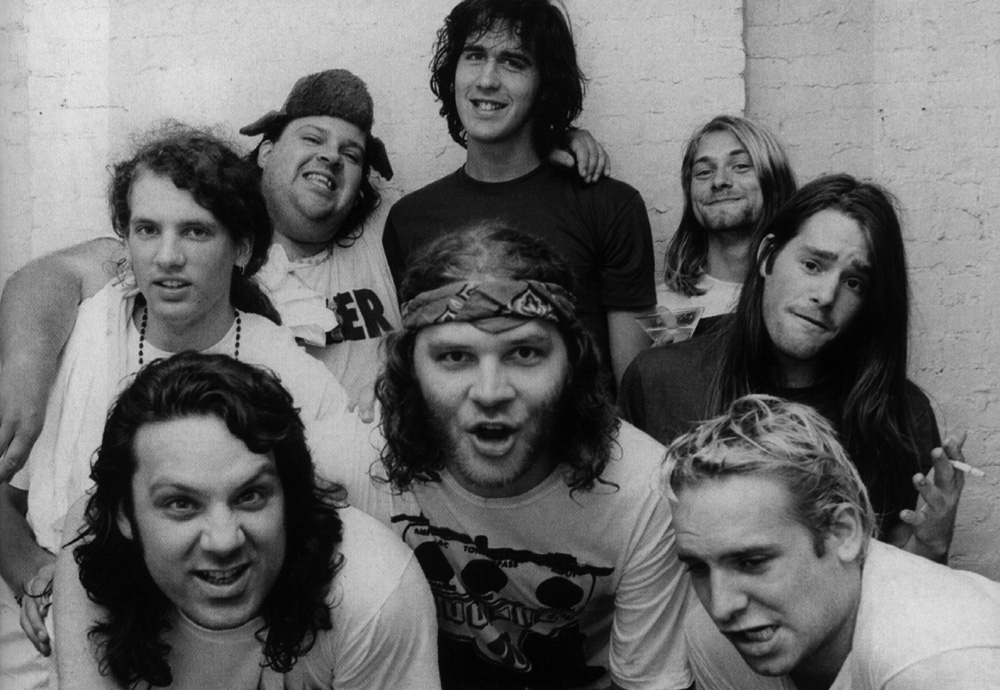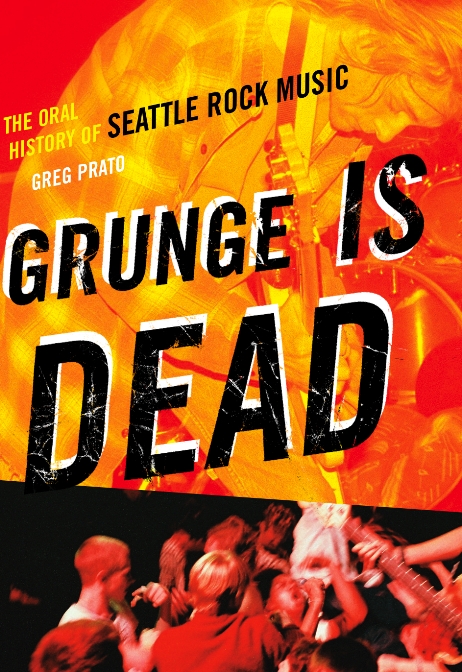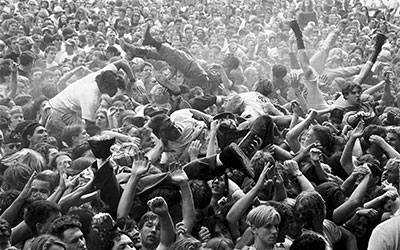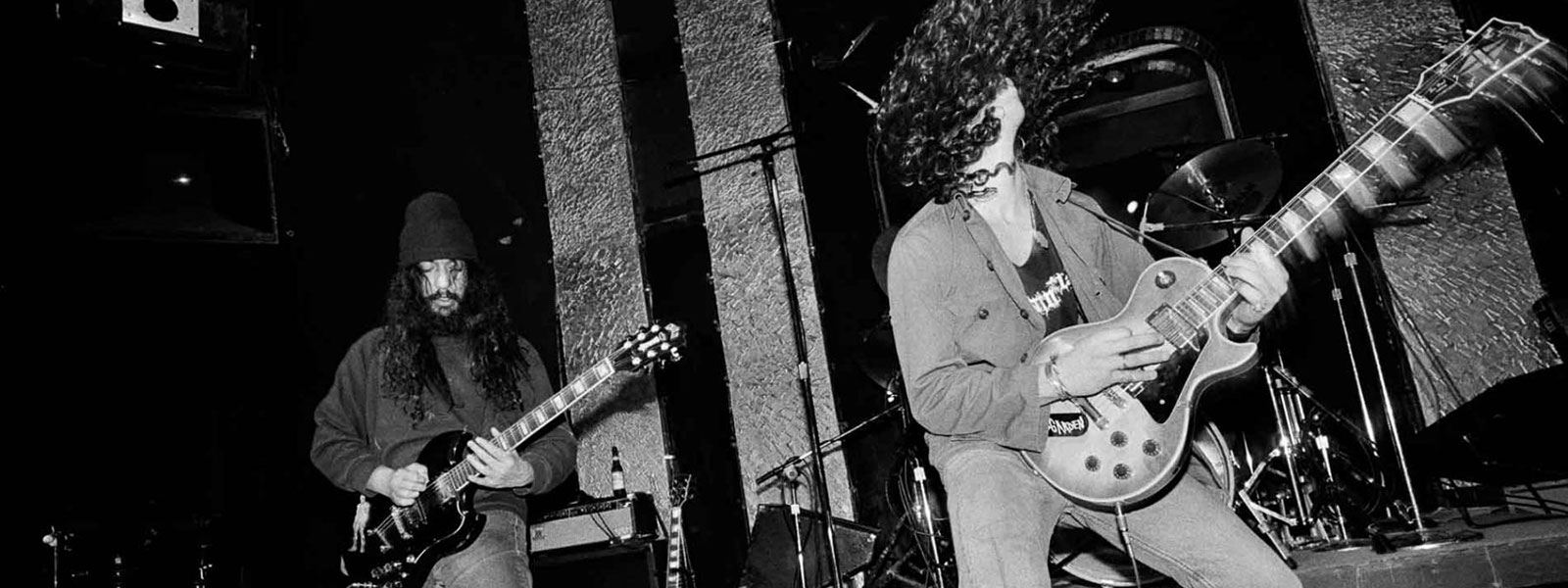The origin of "grunge"
The term "grunge" was almost-universally reviled by the bands it was supposed to describe. Where did the name come from? And how did it stick? A look at the etymology of grunge
Grunge. It’s a word that became synonymous with the Seattle sound. It’s a word that was used to describe a number of different “alternative” bands from the region in 1980s, and then also into the 1990s with bands like Nirvana, Pearl Jam, Soundgarden, Alice in Chains, Mudhoney and Screaming Trees. At one point, the term became so convoluted that the grunge label was used to describe bands like Candlebox, Stone Temple Pilots, Bush and Silverchair, bands that had little or nothing to do with the northwest music scene and bands the progenitors of grunge hated to be associated with.
But where did the term “grunge” come from? And why “grunge?” How did a word that basically was a synonym for dirt or grime become a descriptor of a new music genre?
The first noted instance of referring to a Seattle band as “grunge,” was in a 1981 letter by Mark Arm, according to Clark Humphrey in his account of the Seattle music scene, Loser.1 In his letter, in which he nominated his own “band”, Mr. Epp and the Calculations, as the most overrated band in Seattle, Arm writes: “I hate Mr. Epp and the Calculations! Pure grunge! Pure noise! Pure shit!” (Of course, Epp as a band didn't even exist yet.)

Tad and Nirvana. Two "grunge" bands.
Bruce Pavitt later claimed to have popularized the term as a musical label in 1987, when he wrote some promotional copy for Green River, describing the band as “ultra-loose grunge that destroyed the morals of a generation”.2 Humphrey also notes that a Sub Pop press release described Mudhoney as “ultra sludge, glacial, heavy special, dirty punk.” It was among the many references Sub Pop would make toward “grunge” in its marketing, an exploitation they cheerfully fed to reporters and fans.
In the late 80s, “grunge” did actually define a sound – high levels of distortion, feedback, fuzz effects, a fusion of punk and metal influences. Though the bands attributed to the label definitely had unique talents, there was definitely a similar “sound” there. Much of this had to do with similar production and promotion. Many of these bands were on either the C/Z or Sub Pop record labels. Jack Endino, the so-called “Godfather of Grunge” recorded Soundgarden, Mudhoney, Green River, Nirvana and Blood Circus between 1984 and 1989.
But, by 1990, “grunge,” as a synonym for loud, heavy music, had peaked. Bands like Green River, the U-Men, Cat Butt, Feast and Blood Circus had broken up; Mudhoney and Soundgarden were veering into a new sound, and the scene was full of bands that didn’t fit the original label, like the Fastbacks, Young Fresh Fellows, Posies, Walkabouts and Beat Happening. (Even Nirvana, now liberated from the more restrictive sound requirements of Sub Pop, wanted to go into a poppier direction. Their more commercial approach was apparent in their breakthrough album, 1991’s Nevermind.) The 80s version of grunge, with long-haired musicians wailing away in front of tiny crowds at squalid clubs like the Central Tavern or Squid Row, was dead.
In 1991, Nirvana’s Nevermind album, Pearl Jam’s Ten, and Soundgarden’s Badmotorfinger were all released, and the following year, Alice in Chains released their landmark album, Dirt. With four huge alternative stars all hailing from the same region, the music media wanted a label to describe this new Seattle sound. Despite the music sounding significantly different from each other (and from bands that originally carried the "grunge" label), the “big four” Seattle bands were all labelled as grunge. Any other bands from Seattle at the time, were lumped into the category as well. Ben London of Alcohol Funnycar described it like this: “If you lived in Seattle and were under 30 at that point, you were grunge,” no matter what your band sounded like.
While inaccurate, the grunge label was convenient. For years, MTV and mainstream music magazines used grunge in almost every reference to Pearl Jam, Nirvana or Seattle music. The people directly involved with the music scene, however, hated the term. Former Rocket writer and Sub Pop staffer Jeff Gilbert said the word was like “talking to someone with bad breath: you could put up with it, you still wanted to distance yourself.” Ben Shepherd of Soundgarden put it a little more succinctly: “Grunge was a fucking word used in TV commercials about scum on your shower curtains.” Stone Gossard told an interviewer in the 90s that he refused to even say the word.
Usage of the “g-word” was reviled in Seattle; anyone who used it identified themselves as a poseur. The ridiculousness of the "grunge" label reached a peak when bands like Stone Temple Pilots and Bush were being lumped into the category as well.
Long-time Seattle scene followers even noted that this '90s definition of grunge was completely different than the '80s definition. Pearl Jam would have never been considered grunge compared to bands like the U-Men, Mudhoney or TAD. And it didn't stop there. As Everett True noted in Mark Yarm's Everybody Loves Our Town: An Oral History of Grunge, “the original grunge, the Sub Pop grunge, had nothing to do with the grunge that became popular, like Silverchair and Puddle of Mudd.”
Despite the bands’ almost-universal hatred of this umbrella term, it stuck, even 20 years later. For example, two of the most prominent books on the Seattle/northwest music scene had "grunge" in the title: Greg Prato’s Grunge Is Dead and the subtitle of the aformentioned Mark Yarm oral history, Everybody Loves Our Town. The recent wave of 1990s nostalgia has brought more coverage on the "return of grunge" and its place in music history, especially as Nirvana became the first northwest band of the era to be enshrined in the Rock and Roll Hall of Fame. Music fans who weren’t even alive in 1988 use grunge as an affectionate term for Pearl Jam and Nirvana.

Greg Prato's Grunge is Dead
So what was “grunge”? At the start, it was a joke. Then it became a simple description of a sound/attitude, as well as a Sub Pop hype promotional term. Ultimately, it became a quasi-genre of music based simply on bands’ Seattle origins. But whatever the meaning is, it’s clear that the term “grunge” has permanently linked those 80s and 90s northwest musicians in music history. A club, so to speak, of which they’ll have lifetime membership. Don’t expect the musicians to be proud, card-carrying members of this club, though.
“We never were grunge,” Shepherd insists.
“We were just a band from Seattle.”
Previous Feature
Next Feature
Footnotes
- Mark Arm: "Obviously, I didn't make grunge up. I got it from someone else. The term was already being thrown around in Australia in the mid-'80s to describe bands like King Snake Roost, The Scientists, Salamander Jim, and Beasts of Bourbon."
- Mark Arm, as quoted from Loser: The Real Seattle Music Story
- Mark Yarm, Everybody Loves Our Town
- http://www.youtube.com/watch?v=6k4T4RhuW0E


